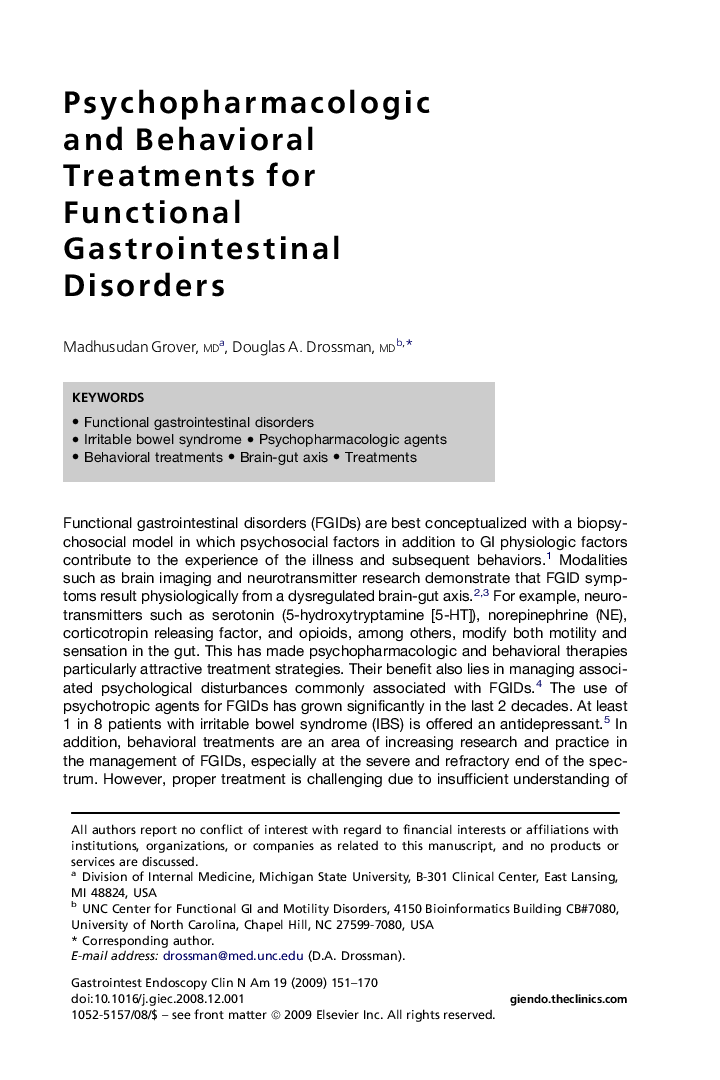| Article ID | Journal | Published Year | Pages | File Type |
|---|---|---|---|---|
| 3310770 | Gastrointestinal Endoscopy Clinics of North America | 2009 | 20 Pages |
Functional gastrointestinal disorders (FGIDs) are commonly seen gastrointestinal (GI) conditions that are diagnosed using established symptom-based criteria. These disorders that typically defy traditional diagnostic methods based on structural abnormalities have intrigued researchers for several decades. This has led to the emergence of the current discipline of neurogastroenterology or the study of the “brain-gut axis,” which is based on dysregulation of neuroenteric pathways as a key pathophysiologic feature of the FGIDs. Psychopharmacologic and behavioral treatments can influence the dysregulation of these pathways, especially at the severe end of the spectrum, and improve the clinical manifestations of these conditions, visceral discomfort or pain and bowel dysfunction. Their actions are mostly at spinal and supraspinal levels with some direct benefits at the level of the gut. Improvements in coping, global distress, and overall quality of life (QOL) have been shown more consistently with these treatments compared with improvement in GI symptoms. A successful approach to patients with these treatments requires a good physician–patient relationship. Strategizing treatments with these modalities is based on recognition of their dual effects on brain and gut, understanding the nature and severity of the GI symptoms and their psychosocial concomitants, and applying them within the context of the patient's understanding of their value.
